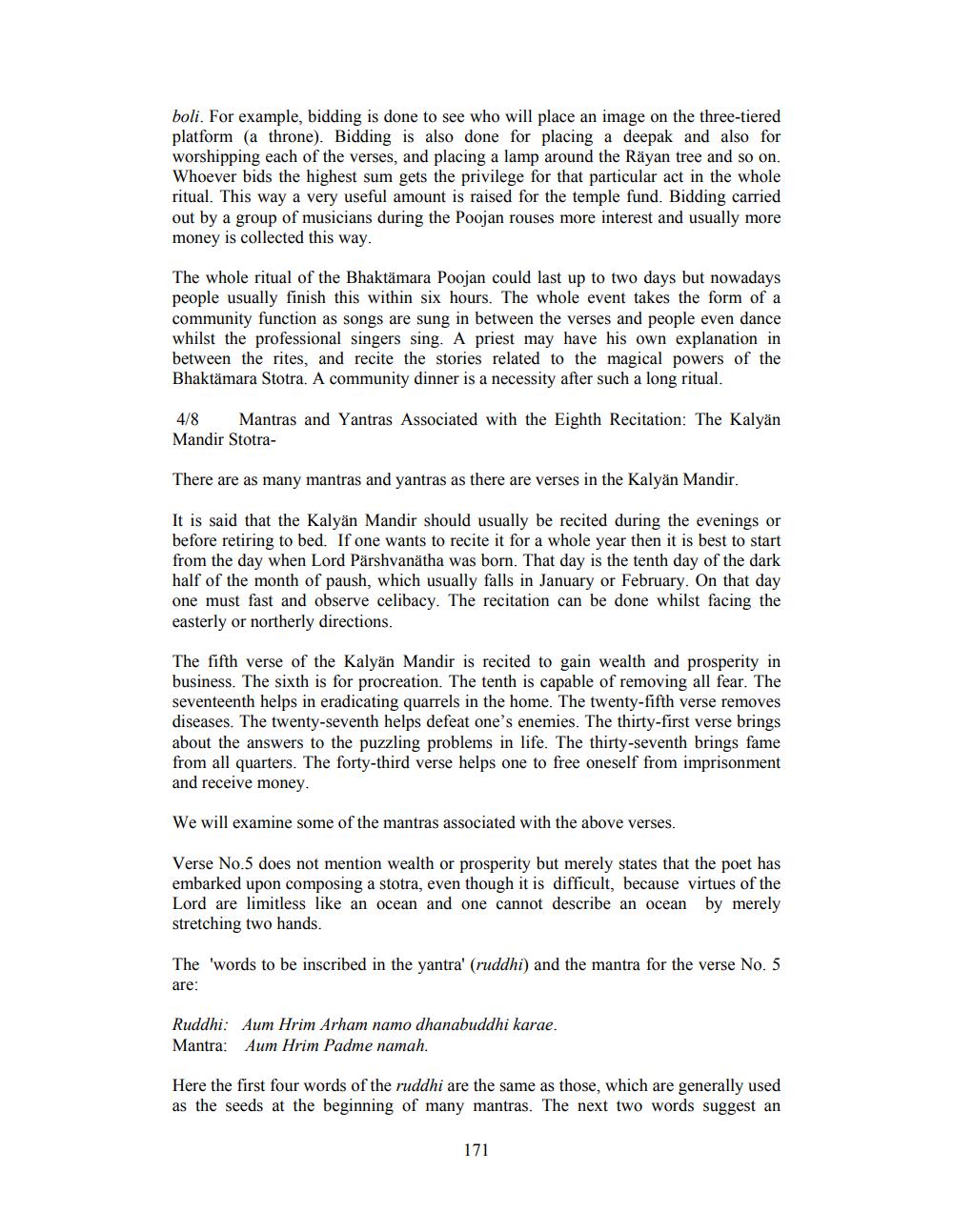________________
boli. For example, bidding is done to see who will place an image on the three-tiered platform (a throne). Bidding is also done for placing a deepak and also for worshipping each of the verses, and placing a lamp around the Räyan tree and so on. Whoever bids the highest sum gets the privilege for that particular act in the whole ritual. This way a very useful amount is raised for the temple fund. Bidding carried out by a group of musicians during the Poojan rouses more interest and usually more money is collected this way.
The whole ritual of the Bhaktämara Poojan could last up to two days but nowadays people usually finish this within six hours. The whole event takes the form of a community function as songs are sung in between the verses and people even dance whilst the professional singers sing. A priest may have his own explanation in between the rites, and recite the stories related to the magical powers of the Bhaktämara Stotra. A community dinner is a necessity after such a long ritual.
4/8 Mantras and Yantras Associated with the Eighth Recitation: The Kalyan Mandir Stotra
There are as many mantras and yantras as there are verses in the Kalyan Mandir.
It is said that the Kalyan Mandir should usually be recited during the evenings or before retiring to bed. If one wants to recite it for a whole year then it is best to start from the day when Lord Pärshvanatha was born. That day is the tenth day of the dark half of the month of paush, which usually falls in January or February. On that day one must fast and observe celibacy. The recitation can be done whilst facing the easterly or northerly directions.
The fifth verse of the Kalyan Mandir is recited to gain wealth and prosperity in business. The sixth is for procreation. The tenth is capable of removing all fear. The seventeenth helps in eradicating quarrels in the home. The twenty-fifth verse removes diseases. The twenty-seventh helps defeat one's enemies. The thirty-first verse brings about the answers to the puzzling problems in life. The thirty-seventh brings fame from all quarters. The forty-third verse helps one to free oneself from imprisonment and receive money.
We will examine some of the mantras associated with the above verses.
Verse No.5 does not mention wealth or prosperity but merely states that the poet has embarked upon composing a stotra, even though it is difficult, because virtues of the Lord are limitless like an ocean and one cannot describe an ocean by merely stretching two hands.
The 'words to be inscribed in the yantra' (ruddhi) and the mantra for the verse No. 5 are:
Ruddhi: Aum Hrim Arham namo dhanabuddhi karae. Mantra: Aum Hrim Padme namah.
Here the first four words of the ruddhi are the same as those, which are generally used as the seeds at the beginning of many mantras. The next two words suggest an
171




